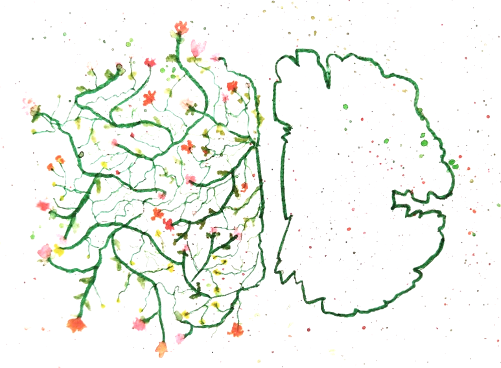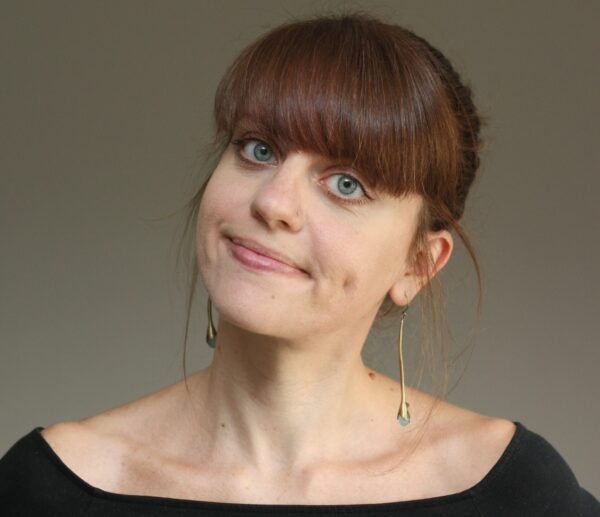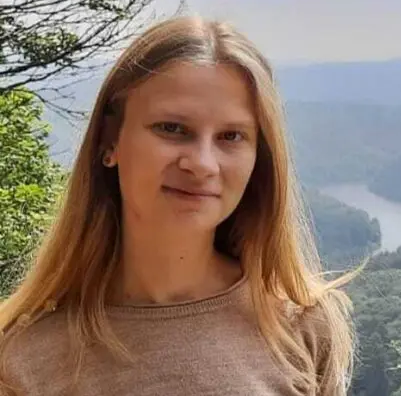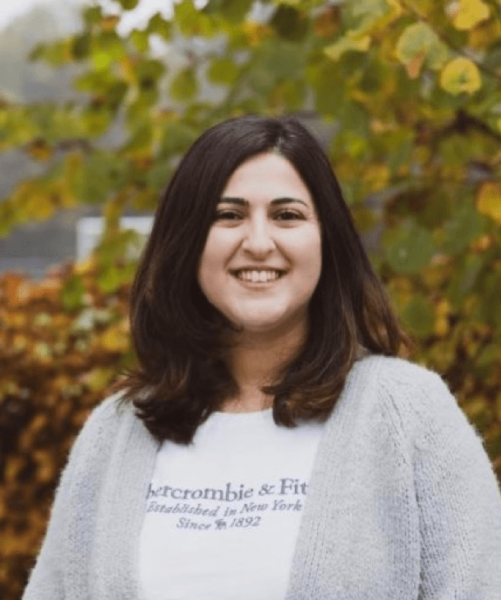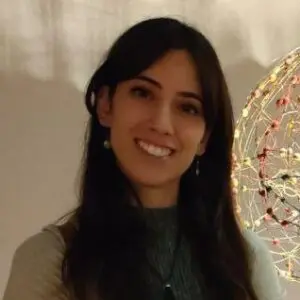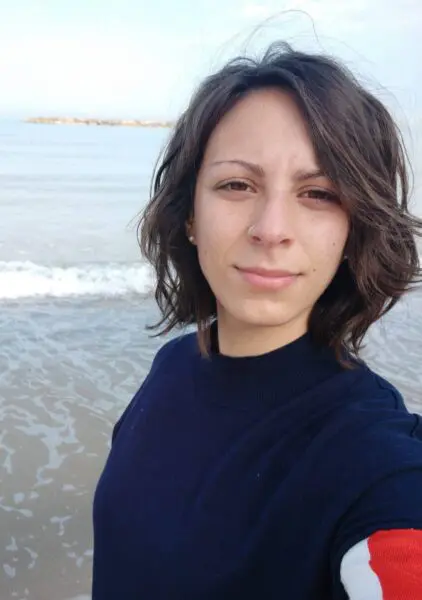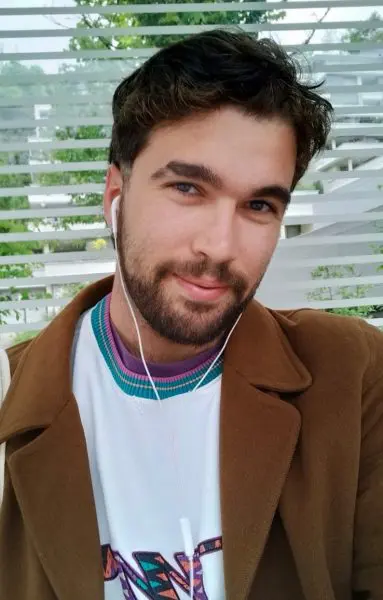Team
The members of Salta Lab

Evgenia Salta, Principal Investigator
The career of Alzheimer researcher Evgenia Salta began in Greece, where she studied pharmaceutical sciences and obtained her PhD. She subsequently left for the VIB-KU Leuven Center for Brain & Disease Research in Belgium. There, she conducted groundbreaking molecular research into the disrupted neurogenic process in Alzheimer’s mouse models.She joined the Netherlands Institute for Neuroscience in 2020.
“I strongly believe that ‘if you are the smartest person in the room, you’re in the wrong room’. Unless you are the only person in the room. Mom and PI in training, fortunate to learn something new every day”.
Sarah Snoeck, Technician & Lab responsible
I’m not only using my brain in the lab but also behind my chessboard. Sometimes my brain needs to relax, then you can find me hanging on the boulderwall, running around in Amsterdam or relaxing in yoga/pilates. I knew early that I wanted to be a lab technician in a medical or pharmaceutical research lab, so that is why I studied a Bachelor in Pharmaceutical and Biological Laboratory Technology. I completed this bachelor’s in 2017 in Ghent. After this study, I had the feeling that I wanted to learn more about the different diseases. That is why I started a second Bachelor in Medical Laboratory Technology, I completed this one in 2019 (also in Ghent). In 2019, I started my first job as lab technician at the KuLeuven in the lab of Bart De Strooper, under the supervision of Evgenia. After 1,5 years, Evgenia asked me to join her here in Amsterdam.
Dilara Ayyildiz, Bioinformatician & Data steward
Like most children I did go through a phase of driving my parents mad by asking ‘Why?’ and ‘How?’ every five seconds. The amount of how questions were significantly higher and most of the time they were biology-related (my mom confirms). I remember the fascination I had when my mom told me about cells for the first time. Then I set up my very own experiment to observe those cells. It was a simple set up, cut an apple and stare at it for hours under the sun and hold it with an angle! The result of the experiment was having myopia, how great is that! Well, nothing has changed since then but now instead of staring at an apple for hours, I just stare at my computer screen and still wonder about many biological questions. I love working with NGS datasets, the holistic nature of systems biology and talking/thinking for hours about philosophical questions which nobody cares.
Elena Moreno Jimenez, Post-Doc
Spanish neurobiologist with a keen interest in the hippocampus, particularly its essential role in learning and memory, its involvement in pathological conditions like Alzheimer’s disease, as well as its remarkable capacity to integrate new neurons through adult neurogenesis. I completed my PhD in Dr. Maria Llorens’ lab, where I investigated the occurrence of adult hippocampal neurogenesis in human beings and its vulnerability under certain pathological conditions. Now, as a postdoctoral researcher in Dr. Evgenia Salta’s lab at NIN, I am excited to further explore the dynamic nature of this process and the complex environment in which it takes place. Beyond the lab, I enjoy bouldering and playing padel, and I’m eager to explore Amsterdam by bike. I also love travelling and attending concerts whenever I have the opportunity.
Giorgia Tosoni, PhD student
Curious mind striving to decipher the link between adult neurogenesis and Alzheimer’s disease, at single-cell level. Boosting my own neurogenesis climbing, running, cycling, and reading books. Molecular biologist by training, with my PhD project I am embarking into the bioinformatics world. My interest is to map the cellular and molecular complexity of the human adult hippocampal neurogenic niche and investigate which are the cell-types and the pathways that may be deregulated in Alzheimer’s disease (AD). To achieve this goal, I profit from the presence of the Netherlands Brain Bank (NBB) in our institute to obtain a carefully selected and stratified collection of post-mortem fresh-frozen human hippocampi, from healthy, AD, and ‘dementia-resilient’ individuals.
Oliver Polzer, PhD student
After obtaining my Master’s degree in Biomedical Engineering from the university of Paris, I further wanted to challenge myself and received the amazing opportunity to be part of two labs, Evgenia Salta’s and Carlos Fitzsimons’s lab, here in Amsterdam. Besides trying to unravel the potential of microRNAs in Alzheimer’s disease, I enjoy in corona-free times concerts and festivals. Further I love bouldering and taking my mountain bike for a ride (latter comes really in handy since the two labs are scattered in Amsterdam). Using adeno-associated viruses, the goal of my PhD is a combined delivery of two microRNAs in order to restore homeostasis of multiple biological pathways and cellular alterations that contributes to the development of Alzheimer’s disease.
Olmo Ruiz Ormaechea, PhD student
Spanish researcher with a love for music—whether playing tunes or enjoying melodies. Hailing from Sevilla, I earned a Bachelor’s in Biomedicine at the University of Sevilla and subsequently a master’s degree in Cellular and Molecular Neuroscience at the Eberhard Karl University of Tübingen, graduating in 2023. During my research journey, I dove into internships focused on various neurodegenerative diseases. Under the guidance of Prof. Dr. Matthias Jucker, I found a passion for using induced pluripotent stem cells (iPSCs) as a model to study these diseases. Currently, I am engaged in my Ph.D. project, exploring the potential beneficial effects of physical exercise on the molecular and cellular aspects of Alzheimer’s disease. This endeavor involves using iPSC-derived cells, including microglia-like cells or iMics, as a platform to study the effects of exercise on brain cells. Through a comprehensive analysis from both morphological and functional perspectives, I aspire to contribute valuable insights to the prevention and protection against aging and neurodegeneration.
Alumni
- Amber Penning, PhD student - Scientist at VICO Therapeutics
